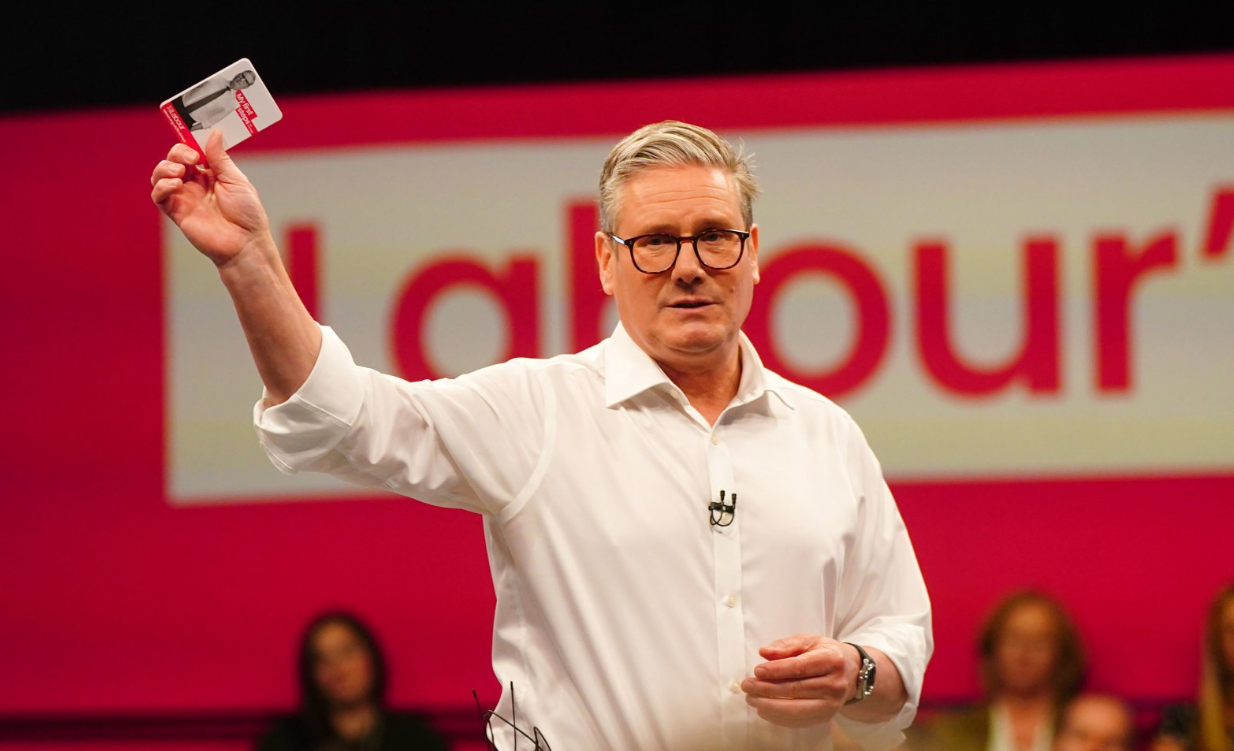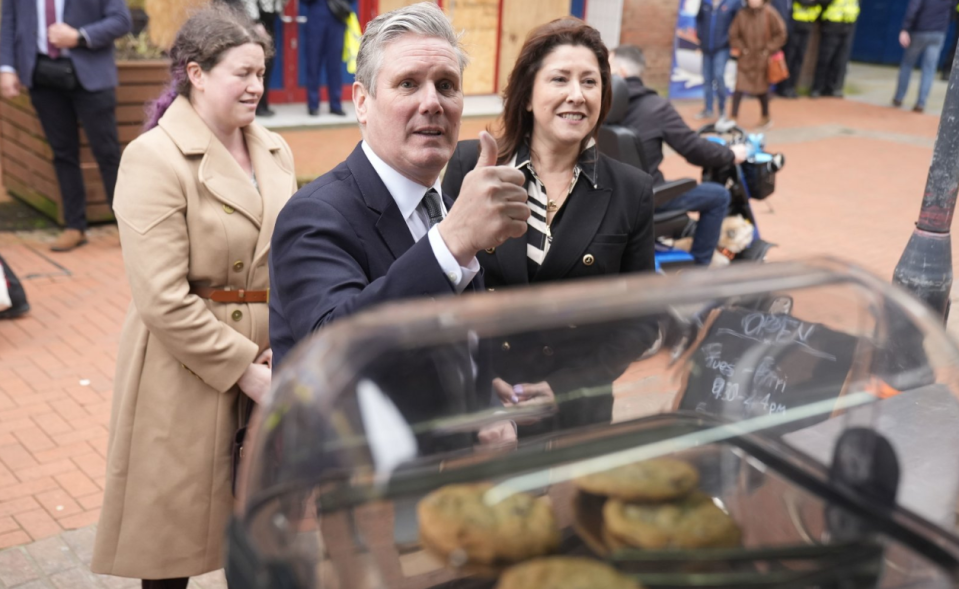What the razzmatazz and promises tell you about Labour

- Oops!Something went wrong.Please try again later.
Labour is leaving absolutely nothing to chance.
With four consecutive general election defeats tattooed across its psychology, it is a party now burning with a determination to do what history tells us it manages vastly less often than the Conservatives: win.
It means every aspect of its approach is worth scrutiny because so many elements of it have been given considerable thought.
The event to set out their key messages for the coming months - the bridge, they hope, from the local election results until the general election is actually called - was remarkable in and of itself.
Literally remarkable, because it had a scale, an ambition and likely a budget normally associated with a party conference or the moment an election campaign is formally beginning.
It felt like the launch of a campaign for a general election in the summer, which is now widely expected in the autumn.

It was in a film studio, of all places.
There were promises, pamphlets, pledges and no shortage of probably pricey razzmatazz.
At the centre of it, near presidential in style, Sir Keir Starmer.
His jacket and tie were nowhere to be seen nor were the buttons on his cuff, his sleeves rolled up to just below his elbow.
This might sound superficial, even trivial, but this sort of stuff doesn’t happen by accident.
They don’t regard it as superficial or trivial, or they wouldn’t do it. So neither should we.
Sir Keir did not leave half his clothes on the train by mistake.
It is a carefully crafted image, with striking similarities to the last Labour leader to pull off what Sir Keir is attempting: actually winning.
Sir Tony Blair did the casual-look thing, tie on but top button undone.
He also had a pledge card not vastly dissimilar to the card of pledges the party is parading now.
He also had a pledge card not vastly dissimilar to the card of pledges the party is parading now.
"My First Steps" they are called - note the possessive - next to a picture of Sir Keir.
As for what he was and wasn’t wearing, the Labour leader told me: "This is about doing politics in a different way. It's about trying to get across the sort of leader I am, of my mindset and who I've got in my mind's eye when I make decisions."
He added: "I have to lead from the front, I've led various organisations. You always have to lead from the front. Be clear about what you're trying to achieve, about how you're going to get there."
His shadow cabinet colleague Steve Reed, a guest on the BBC’s Newscast, told me his boss was “looking very workmanlike".
"That is what he is like," Reed said. "I think there is an authenticity in how he came across. I have known the guy for a long time. That is how he comes across when you speak to him.”
Talking of image, and perhaps attempting to look relaxed and conversational, Sir Keir does his interviews with us standing up and almost always leaning to his left, resting his arm against a railing or anything nearby.
The strategic aim of the promises set out by the party this week is to give their candidates and senior figures something to talk about between now and the moment the general election is actually called.
It is what politicians like to call their "retail offer" – ideas they can summarise in a doorstep-ready sentence or two and repeat over and over again until people notice.
Far from everything is there – for instance housing isn’t.
Expect the party to address that vital topic for so many people in the coming days.
Insiders claim the absence of an idea from the six "first steps" doesn’t mean it is no longer a priority.
They cite the National Minimum Wage, a flagship idea of the Labour government of the late 1990s, which was in the party’s manifesto in 1997, but was not on their pledge card at the time.
Put together, the theatre of the launch and the words themselves, I witness Labour with a craving for power I haven’t seen before.
It is a longing for office grounded in and further fuelled by how often it has failed to make it there, not just in the last decade but the last century.
Psychology with that amount of history weighs heavy.

